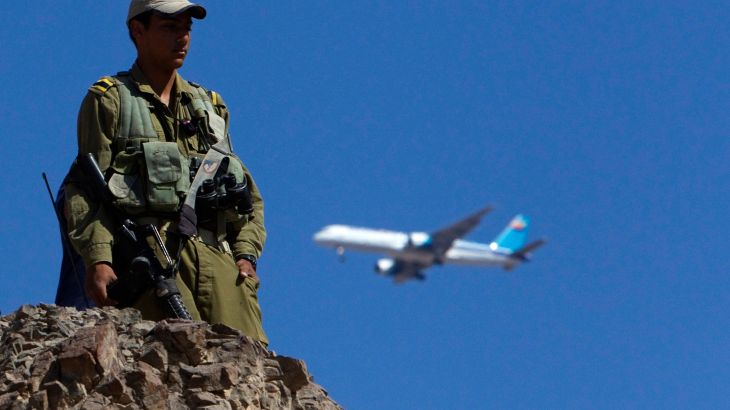
Egypt’s lawless peninsula
Does the increasing violence in Sinai pose a security threat to Egypt and Israel?
Egypt’s Sinai is one of the most volatile areas in a region slipping deeper into political crisis, and it is seen by many as a lawless hotbed of militant activity.
For years, the country’s security forces have been trying to root out the armed groups that operate there.
In many developing areas … border areas are always very far away from the control … of central governments … Sinai in particular ... is three times the state of Israel … it's not easy to control it, especially if you have political activity that is challenging the authority of the state.
On Tuesday, Israel intercepted a rocket launched from the peninsula into Israeli territory. The group responsible for the attack says the rocket was launched in retaliation for one that killed a number of its members.
It is the latest in a long list of border skirmishes, which have intensified since former Egyptian President Hosni Mubarak was deposed.
The Sinai is a part of Egypt where strategic interests, poverty and neglect have all combined in a potentially disastrous mix.
It is bordered on the west by the Suez canal, one of the most important shipping routes in the world; to the east is Gaza and Israel, which occupied the Sinai in 1967.
It was returned to Egypt in 1982. But an agreement between the two countries limits Egypt’s ability to deploy troops in the area.
The Sinai is often believed to be lawless; it has been used as a route for smuggling and other criminal activities. But it is the people of the Sinai, particularly in the north, who are worst affected by the movements around them.
Despite its strategic importance, the area was neglected under Mubarak, and it remains one of the poorest places in the country.
So what are the root causes of violence in Sinai? And how much of a security threat does it pose to Egypt and Israel?
To discuss this, Inside Story, with presenter Stephen Cole, is joined by guests: Said Sadek, a political sociologist at the American University in Cairo and a specialist on the Sinai peninsula; Menachem Hofnung, a professor of political science at the Hebrew University, who is also the author of the book Democracy, Law and National Security in Israel; and Riad Kahwaji, the director of the institute for near east and gulf military analysis.
|
“It’s the duty of the army and the security forces to make sure that there are not lawless areas in its country. You can never provide a 100 percent security-proof environment … but not to the extent of having a few hundred outlaws, jihadists or al-Qaeda … very well armed with heavy weapons, medium weapons … taking advantage of this vast desert.” Riad Kahwaji, the director of the institute for near east and gulf military analysis |